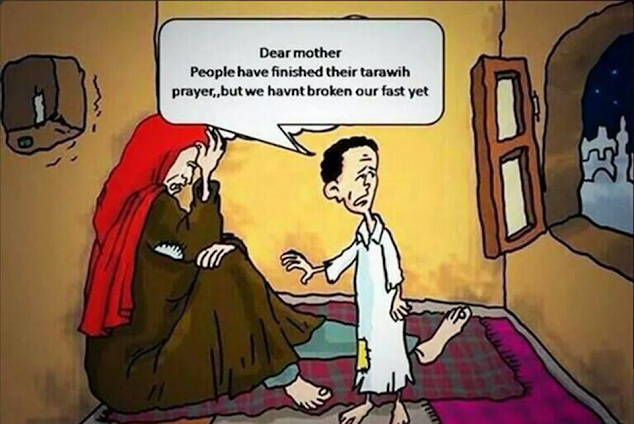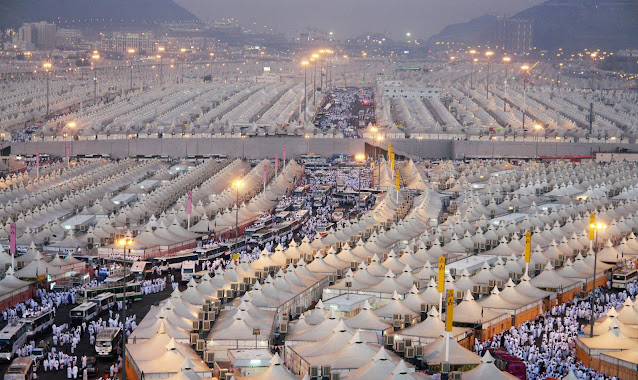Surah Al-Qadr (97:1-5)
So what is the real message of Surah Al-Qadr?
Let us read the chapter, word by word and make clear sense of the text.
1 | Layl – the term night in the Quran usually refers to the times of darkness that covers the light (nur). 91:3-4 When the Day when it shows it. When the Night when it draws a veil over it. 93:2 And the Night when it covers with darkness
And the revelation is always when we are in the dark. 44:3 Indeed, We sent it down during a blessed night. Indeed We were to warn.
There was no special night selected from the Jahili Calendar. |
2 | Al-Qadr – qadr generally means to measure, estimate, scale, determine or assess. This act of measuring is to determine or assess our predicament, the state of consciousness and truth. If we are able to witness and comprehend the unsound conditions, or obscene situations, then we must act upon it to relieve ourselves from this situation of darkness. |
3 | Alfi – from the root word Hamza Lam Fa, : he frequented it, or resorted to it habitually; he became familiar with it, or accustomed, or habituated, to it (the Sihah, Taj al-Aroos) Verse 3 is saying that the act of comprehending the dark situation is better than making ourselves accustomed to the dark situation. Also refer to 106:1 & 2 of the familiarity of the Quraisy. 106:1 For the familiarity [liīlāfi], of the Quraish, 106:2 Their familiarity [īlāfihim], embarking [riḥ'lata] the winter [l-shitāi], and the summer [wal-ṣayfi]. |
4 | Shahri – from the root word Shiin Ha Ra , : he made it apparent, conspicuous, manifest, notorious, notable, commonly known, or public (Sihah, Kamoos) Something well known. |
5 | Al-Fajr – Also in relation to the darkness, Al-Fajr symbolizes the beginning of the light towards a new era. |
Once we have recognize the restrictive situation of the dark period, and comprehend the false ideology, mistakes behind it, we are then able to embody, engage and summon all the forces that are available, to our own disposal, to make it right
There is no such thing as a special night in the last ten nights of the Jahili Arab calendar month of Ramadhan.
For over 14 centuries, has anyone ever claimed to have been blessed with a night of a thousand months?
Have you met anyone?
Every year Muslims are reminded to pursue this night, and we became obliged, since we have no way to assure ourselves that we have obtained it the year before and years before that.
You can only guess, but the Quran had warned us against guessing or making conjectures. This is leaning towards blind following.
To associate something, including a particular day, night, month or anything with Allah is shirik.
Summary
Revelations comes when we began to make reckoning, assessment, determination, judgement of the dark conditions we experience. It is a period where the negative results measured were evaluated to analyse or determine the cause and effects of a situation or predicament.
This comprehension will be the turning point, of submitting to what has been ordained by the Lord of the Universe.
(Do read Sheikh Hassan's exposition on the definition of Islam being in constant turning towards any idea that is tested to be good and rightful:)
https://www.youtube.com/watch?v=-VKMb7r6WNA&t=394s
Such comprehension will reveal the way towards the desirable results, by employing all the right resources towards the conditions of peace and security.
This determination to embark towards betterment is a call to set apart from the accustomed situation, where the dark period has become a familiarity.
We can reflect this in two scenarios;
First is the social economic perspective.
In the story of Shuaib, his community were reluctant to change their way of trading by altering the scale and measurement, because they were already comfortable to their ways, that had served them comfortably.
Also in Surah Al-Jumu’a, The elite class were not willing to listen to the call to enjoin goodness and forbid the wrong. They had ignored the message in the call, in preference of the worldly gains and pleasure that has become a familiarity to them.
The result of this will be an imbalance of wealth in the community and widening of economic gap resulting in exploitation of the lower section of the society.
This is the dark side which one need to identify, analyse and make the necessary reckonings for the betterment of society.
The other perspective relates to the social doctrines, where a certain society is confined to a customary or religious decree that was based on false doctrine. One will realize it is a false doctrine when the outcome is never tangible, but is rested on hope and belief. Even worst, they do not provide any results of real importance.
Once we have understood the restrictive situation of the dark period, and comprehend the false ideology behind it, we are then able to embody, engage and summon all the forces that are available, to our own disposal.
The European Example
Europeans had experience this dark period, aptly termed as The Dark Ages, a period identified by intellectual and economic decline, where the clergy of the Church reign supreme. Centuries later, Europeans critical thinkers began to perceive religion as antithetical to reason, hence The Age of Reason, or the Enlightenment took shape to transform Europe, with global influences to explore and develop wide range of ideas, knowledge and human values that initiated scientific and industrial revolution that gave us modernism in the 20th Century.
The transformation of Europe from The Dark Ages to it’s current modern and civilized nation is parallel to message of the Surah Al-Qadr. Al-Qadr is not an overnight affair, but requires a long and rigourous process of analysis, development and outcome.
The Enlightenment Period - European Rationalism
In contrast to the European Dark Ages, the Muslim world was experiencing the Islamic Golden Age that had produced rational thinkers, philosophers and scientists, also known as the Muktazila. On the other hand, the outcome of this Islamic Rationalism or Enlightenment, did not result in the same manner of the Europeans. But the works of the Muktazila continued and carried further by the Europeans during the Age of Reason.
The second half of the Islamic Golden Age has seen a marked increase in the influence of clergymen, that was seen very important by the Empire as means of influence and govern the vast empire. The same model of the Roman Empire, using Christianity to suppress and retain their authority.
It is very unfortunate that the Muslim world is still unable emulate the Rationalism of the Europeans but took refuge in the same model of the Roman Empire.








Comments
Post a Comment